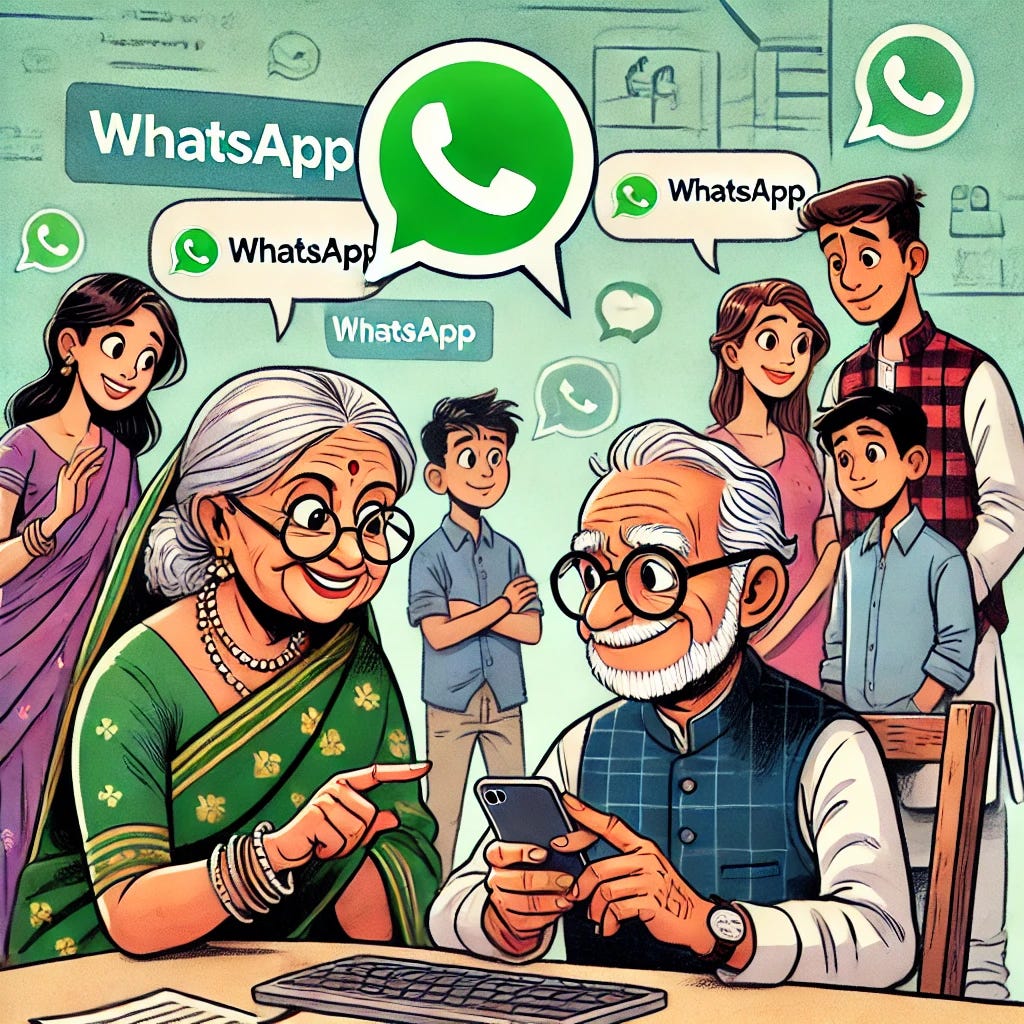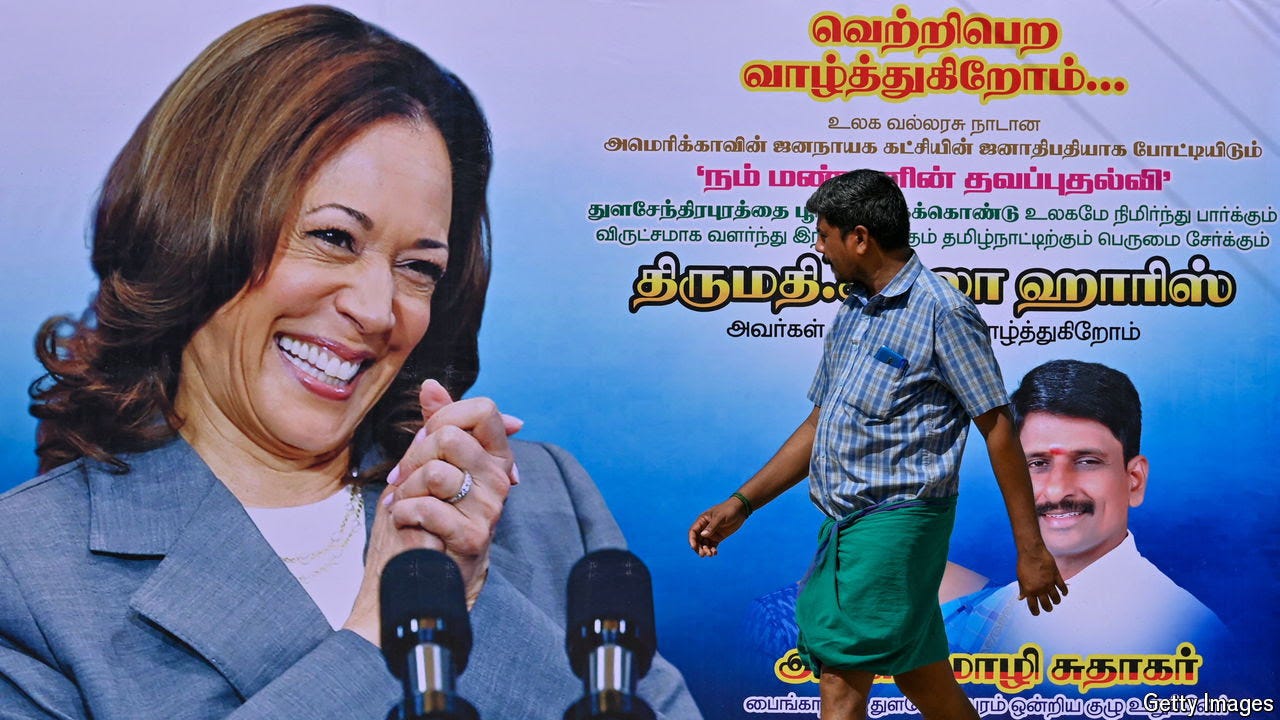India's "WhatsApp Uncles": Underappreciated Influencers
India's "WhatsApp Uncles"
Leo Mirani, Asia correspondent for The Economist, recently wrote in his newsletter about India’s so-called “WhatsApp uncles.” These individuals are often subjects of both derision and exasperation. Every family group has one—often several. Like uncles all over the world, they are known for their prolific message-forwarding habits, their strong opinions, and their weakness for nationalist memes (with a sideline in cringey jokes). As any Indian with a smartphone will be all too painfully aware, one of the favourite themes of the WhatsApp uncle is that Indians are taking over the world—running Google, Microsoft, Adobe, a bunch of other companies no one has ever heard of, and also the occasional minor country, such as Britain.
Reassessing the "WhatsApp Uncles"
The enthusiasm of these individuals is often referred to pejoratively, particularly in the context of the rising prominence of Indian-origin figures like Kamala Harris, the presumptive Democratic Party nominee in the US presidential race, and Usha Vance, the spouse of Donald Trump’s running mate. Mirani noted that while this diversity is good for the USA, it offers little tangible benefit for India as a country, aside from inexplicable glee among the "WhatsApp uncles." This observation prompted me to address the subject, not from the perspective of children of Indian immigrants entering national politics in the USA, but to explore the often-overlooked wisdom and influence of the "WhatsApp uncles," a group in which I could arguably be included.

Highly Educated and Analytical
Contrary to the stereotype, many of these "WhatsApp uncles" come from backgrounds of substantial academic and professional achievement. They have spent decades in various fields—be it administration, academia, business, or the sciences—accumulating a wealth of knowledge and experience. Their insights into political and social issues are often grounded in a robust understanding of historical context, policy implications, and the intricacies of international relations.
Understanding Beyond Borders
These men are not just armchair critics. Their understanding extends beyond the politics of India to encompass the political landscapes of the United States, Canada, the United Kingdom, and other nations with significant Indian diaspora communities. They draw informed inferences from global events, making connections that are sometimes overlooked by mainstream media. Their commentary often reflects a nuanced perspective that comes from years of observing and participating in political processes.
Mini-Influencers in the Digital Age
While they may not have the vast following of celebrity influencers, "WhatsApp uncles" exert significant influence within their social circles. Their opinions and forwarded messages reach hundreds, sometimes thousands, of family members, friends, and acquaintances, far beyond their immediate network. Some of them are prolific on social media platforms like X, Facebook, and LinkedIn, where they enjoy significant credibility and a loyal fan-following. This network effect means their viewpoints can subtly shape the opinions of younger generations far beyond the family’s WhatsApp ecosystem. Whether consciously or unconsciously, these older men are mini-influencers, playing a pivotal role in the digital dissemination of ideas and opinions, both in India and among the Indian diaspora worldwide.
Bridging Generational Gaps
One of the underappreciated aspects of "WhatsApp uncles" is their ability to bridge generational gaps. In a rapidly changing world, they provide a sense of continuity and connection to the past. Their messages often contain reflections on historical events, cultural anecdotes, and moral lessons that can offer valuable perspectives to younger recipients. This intergenerational dialogue, facilitated through digital platforms, is crucial for maintaining a shared cultural and historical consciousness.
Potential for Mainstream Media
Publications like The Economist would do well to consider the untapped potential of these seasoned individuals. Hiring them to write perceptive pieces, summarising their perspectives, could bring a fresh and grounded viewpoint to mainstream media. Their analysis, enriched by years of lived experience and professional expertise, could offer readers a deeper understanding of current events and trends. Moreover, their ability to synthesise complex information into relatable narratives could resonate with a broad audience.
In Summary
In dismissing "WhatsApp uncles" as mere nuisances or relics of a bygone era, we risk overlooking the valuable contributions they can make to public discourse. These men and women are not just purveyors of forwarded messages; they are repositories of knowledge and experience, capable of offering insightful commentary on both local and global issues. Recognising and harnessing their potential could enrich our collective understanding and foster a more informed and interconnected society. It’s time to move beyond the stereotype and appreciate the wisdom and influence of "WhatsApp uncles."





